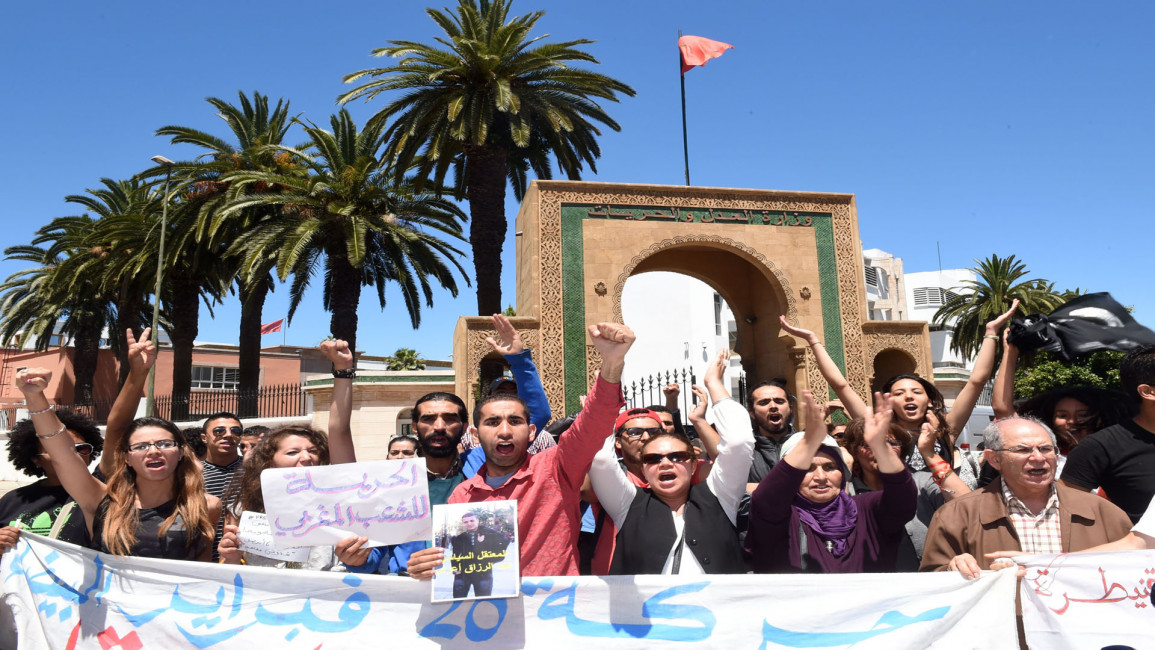
The legacy of the Moroccan Spring
February 20 is a memorable day for many Moroccans, as on that day, four years ago, their country saw 54 rallies and protests raising slogans against corruption and tyranny.
The Arab Spring and the call for freedom united hundreds of thousands of youths, despite their political, ideological and social differences. But did the 20 February mobilisation achieve its goals?
Moroccan youths are inclined to admit their undertaking to change the country failed. Morocco did not form an elected committee to create a democratic constitution for a parliamentary monarchy where the throne does not rule, nor did it send those who plunder public money to prison.
The regime's tame political parties did not withdraw from politics, and there were no deep economic or social reforms. The country did not replace tyranny with democracy. They see the opportunity for liberation as lost, and it will not come again any time soon.
| Morocco struggles with growing unemployment. Read more. |
| Reformist movements are gradual, not sudden ruptures. |
I disagree, however, with this prevailing opinion.
February 20 was not a revolutionary party; it was a social movement born out of the womb of the Arab Spring.
Its youth spontaneously took to the streets, without any revolutionary struggle or a plan to overthrow the regime. For a whole year, the protesters demanded freedom, dignity, employment and an end to corruption. Social protests and political uprisings are reformist in nature, not revolutionary.
Reformist movements are gradual, not sudden ruptures. Thus, the effect of such movements has profound effects over time in politics, culture and in collective memory.
Achievements
Among the achievements of the mass mobilisation in Morocco was the creation of a new constitution written, for the first time, by Moroccans - rather than the usual French "experts".
A constitution reflects the power balance at the time of its creation and, in 2011, power was almost equally divided between, one one side, the state (represented by the royal court), political parties, and the elite - capital and its interests and the administration - and youth, leftist movements, the Justice and Charity party and civil society organisations on the other.
The critical mass, that is, the middle class, remained in the middle, enthusiastic for change - as long as it did not sacrifice stability, and supporting reforms only within the confines of the royal palace.
This allowed for a constitution in which the king shared some of his powers with the prime minister. More transparent elections were held, and a more representative government was formed - at least more representative than technocratic governments formed by political figures who do not represent anything or anyone.
Prime Minister Abdelilah Benkirane said, in the words of the popular proverb, the Moroccan Spring "heated the pot without burning it" - not because it was weak, but because the situation in Morocco is different from that in Tunisia, Egypt, Libya, Syria or Yemen, where rulers lost their legitimacy.
On the contrary, Morocco's monarchy retained its legitimacy because it was flexible and pragmatic when dealing with domestic and foreign changes. It renewed itself without losing its religious legitimacy, in a country historically known to be conservative.
| Morocco's monarchy retained its legitimacy because it was flexible and pragmatic when dealing with domestic and foreign changes. |
Popular mobilisation in Morocco did not destroy the Authenticity and Modernity Party founded by the state in 2008, but rather changed its function and undermined its aspirations of taking power in 2012 and following the Tunisian model - in which economic growth is a priority over freedom, democracy and pluralism.
This party's highest aspiration now is to slow down the advance of Islamists currently in the government, and perhaps to share power with them in 2016.
What a difference from their aspirations a few short years ago.
Many achievements came out of the 20 February movement; the people's fear of the regime has been broken. The Moroccan Spring allowed tens of thousands of youths to enter into politics, when they were not previously interested in public affairs.
They are now active in protests, social media, journalism, universities, art, theatre and cinema. They have been resurrected, and tomorrow they will join existing parties or even create their own new parties. They will continue what they started on 20 February, in many different ways.
Opinions expressed in this article remain those of the author and do not necessarily reflect the opinions of al-Araby al-Jadeed, its editorial board or staff.
This is an edited translation from our Arabic edition.


![President Pezeshkian has denounced Israel's attacks on Lebanon [Getty]](/sites/default/files/styles/image_684x385/public/2173482924.jpeg?h=a5f2f23a&itok=q3evVtko)



 Follow the Middle East's top stories in English at The New Arab on Google News
Follow the Middle East's top stories in English at The New Arab on Google News


